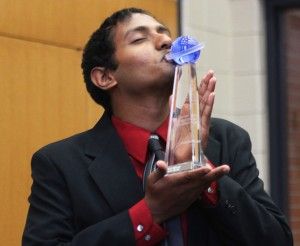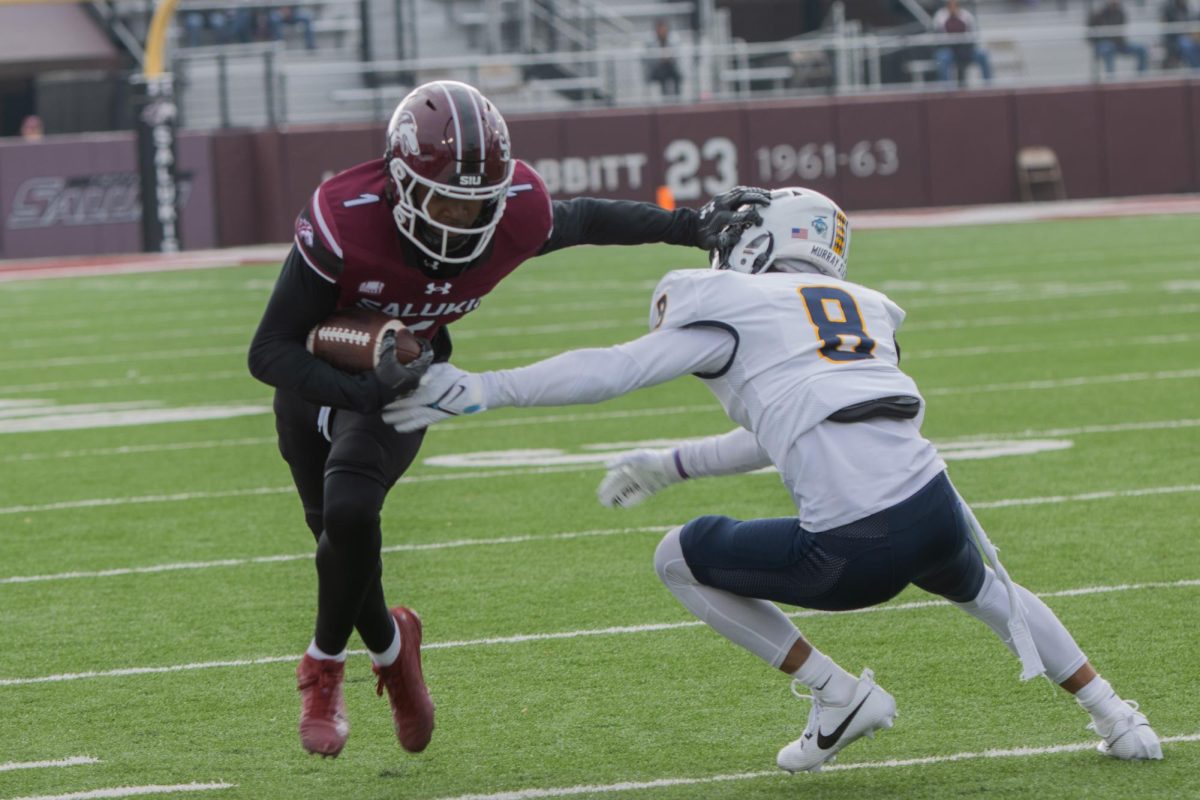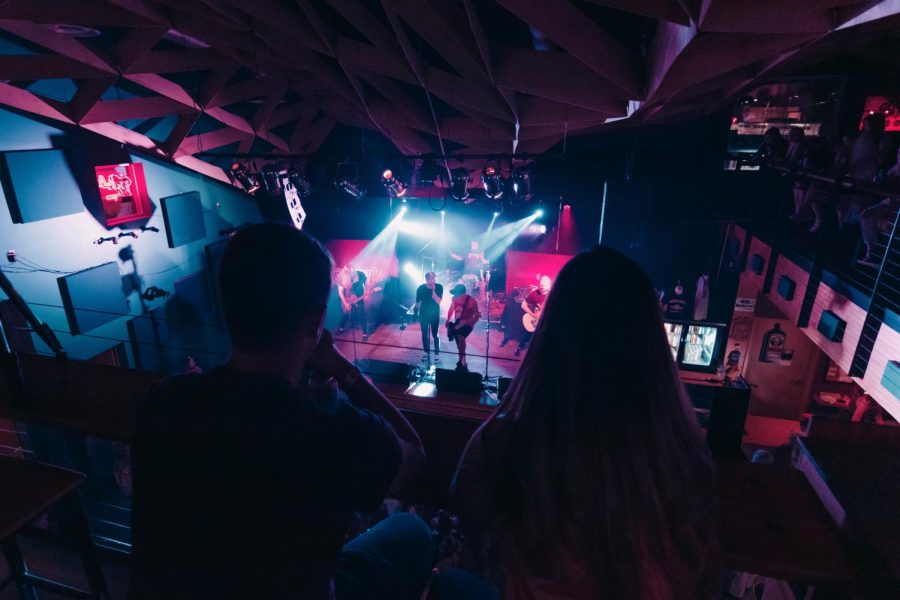Aviation company challenges students to consider future

April 28, 2013
Finding a way to protect pilots from blinding lasers was just one part of a university competition that was anything but an average senior project.
Twenty-two engineering students participated in “Crew Station 2040 Challenge: University Capstone Competition,” which was sponsored by Boeing Military Aircraft and took students two semesters to complete. During the competition, students designed a cockpit that would be used in 2040. Two student teams, Horus and Flying Pharaohs, were judged and critiqued on their designs Thursday and Friday, and they were judged on how they solved criteria, and technical efficiency.
Frances Harackiewicz, professor of electrical and computer engineering, said Ed Winkler of Boeing contacted the university to hold this competition, which Boeing originally sponsored at military academies. The interact with Boeing engineers throughout the project, she said.
Advertisement
“This is a great opportunity for (students) to have their work judged by engineers with years of experience working on the same or similar types of problems in the industry,” she said.
Harackiewicz said she helped advise the students, but the designs were created solely by the teams.
“(The students) received guidance from the senior design course professors, as well as other faculty in the college they tapped into for technical advise,” she said. “But the students had to create and prioritize their own weekly action items as a team.”
Harackiewicz said the competition challenged students in ways that will help them obtain future jobs. Both teams were isolated from each other and had no idea what their opponents were working on, she said.
After two semesters of hard work and judging from Boeing executives, as well as university staff, Horus won by a small margin, said Nick Musick the team’s project manager, a senior from Eureka studying electrical engineering.
Musick said he worked on engineering-related team projects before, so he decided to take his experience to team Horus and the Boeing competition. Horus’ design was examined for an overall technical analysis, the team’s brainstorming process and technology trends competitors predicted would be viable in 2040, he said.
“This project took my experience as an engineer working with a team to a new level,” Musick said.
Advertisement*
The team interviewed different pilots to find solutions to modern cockpit issues that they might have had, he said. One idea the team considered was to have cockpit controls be controlled by neuroscience, , he said where a pilot would control a plane with their mind.
“(Neuroscience control) was a complicated idea because it would have to decipher between a thought and a decision, which might be difficult during high-stress situations,” Musick said.
Musick said it was a challenge to build a design that might not be operational for awhile.
“Both teams gave up a lot of nights for this,” he said. “It was a lot more demanding, impressive project to do than a typical senior project.”
The biggest challenge, he said, was to think something would work in the design but then find flaws later.
“Things never go smoothly,” Musick said. “I feel like I learned more by doing this competition than in a class.”
Team Flying Pharaohs project manager Jonathan Miller, a senior from Tamaroa studying mechanical engineering, said, his team considered adding teleportation to its design at one point but had to rule it out. Much of the creation process involved deciding whether different designs would be possible by 2040, he said.
“You look at current research and look at what might be feasible and available,” Miller said.
The Flying Pharaohs designed a method to help solve the issue of pilots being blinded by lasers, a problem Boeing told the teams to help alleviate in their designs as blinding lasers could very well be a weapon used in future military strikes, Miller said.
Boeing has hired many university graduates, Miller said, so it was an exciting experience to have Boeing executives and School of Engineering administration help judge the designs.
“They have done several education outreach competitions in the past,” he said. “(Boeing) chose schools to help prepare future engineers.”
Miller said his hard work will pay off in his professional future. Boeing might look highly at a student who puts the dedication into a competition like this, he said.
“The experience and workload are well worth the effort,” Miller said.
Advertisement








